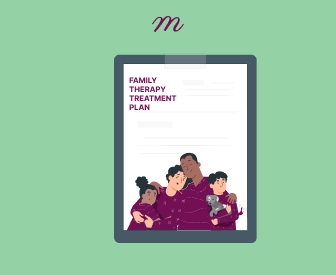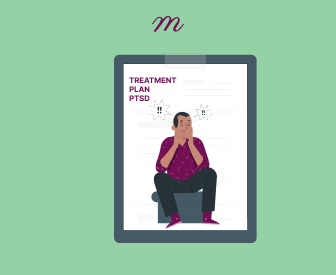Have your progress notes written for you automatically
Exploring the Dynamics of Therapeutic Relationships
Have you ever pondered the profound impact of the therapeutic relationship on healing? It’s often stated that the bond between the client and the therapist reigns supreme in therapy. While techniques and theories have their place, the human connection truly drives change. This article delves into the art and science of cultivating these transformative bonds. Let this article serve as your guidebook for cultivating trust, empathy, and cultural understanding – the core components of any powerful therapeutic relationship. Consider this your guidebook for forming connections that facilitate healing.
Before we dive deeper, take a moment to reflect on a past therapeutic relationship that has left a lasting impact on you. What qualities of that relationship do you believe contributed most to its effectiveness?
Understanding Therapeutic Relationships
Constructive therapeutic relationships are crucial for successful mental health treatment. They establish a strong connection between mental health professionals and their clients, the foundation of positive outcomes. The critical elements of these relationships are trust, empathy, and clear communication, which create a solid basis for emotional growth and healing. Building and maintaining therapeutic relationships requires expertise, dedication, and a deep understanding of clients’ unique backgrounds, values, and beliefs. It’s essential to foster cultural awareness and sensitivity and avoid exclusive language to develop strong therapeutic relationships that are essential for effective therapy.
Types of Therapeutic Relationships
As professionals in the mental health field, we recognize that therapeutic relationships come in various forms, and we tailor our approach accordingly. The five primary types of therapeutic relationships, including the Collaborative Working Alliance and the Reparative Relationship, offer unique benefits and opportunities for growth. By fostering different dynamics and interactions, we can meet the diverse needs of our clients and facilitate meaningful progress and healing.
These five categories include:
The Working Alliance
- Built on shared goals and tasks
- Emphasizes clear communication and collaborative efforts
- Paves the way for successful treatment and positive changes
The Reparative Relationship
- Involves providing positive qualities like empathy and acceptance
- Addresses attachment issues and unmet emotional needs from childhood
- Fosters a corrective emotional experience for constructive growth
The Person-to-Person Relationship
- Creates an authentic and honest interaction
- Encourages transparency and presence in communication
- Builds a genuine connection and rapport for significant growth
The Transference Relationship
- Allows clients to project emotions onto the therapist
- Provides insights into past experiences and unresolved issues
- Requires managing countertransference for effective therapy
The Transpersonal Relationship
- Explores deeper aspects of human experience beyond the individual self
- Addresses questions of identity, values, and existential concerns
- Facilitates transformative change and spiritual growth
Building Rapport, Trust, and Maintaining Boundaries
Developing a solid therapeutic relationship with clients is crucial for creating a safe and supportive environment where they can explore their thoughts, feelings, and experiences. It’s essential to establish healthy boundaries while nurturing rapport and trust. In this regard, let’s explore some effective strategies for fostering these elements in therapy.
Fostering Rapport and Trust:
- Be punctual and dedicated to clients’ well-being
- Practice active listening and empathetic responses
- Encourage open expression without judgment
Maintaining Healthy Boundaries:
- Establish clear boundaries around scheduling and communication
- Use contracts and consent forms to clarify expectations
- Avoid dual relationships and monitor self-disclosure
- Seek regular supervision and consultation to review boundary issues, seek guidance, and address any challenges in practice
Developing and maintaining healthy boundaries is an ongoing process that requires self-awareness and reflection. While challenging, setting clear and consistent boundaries can help build trust in the therapeutic relationship and support ethical practice. Although boundaries may vary depending on the theoretical approach, client population, and treatment setting, the most crucial boundaries prioritize the client’s well-being, confidentiality, and protection from exploitation.
Overcoming Challenges in the Therapist-Client Relationship
Establishing a solid and reliable therapeutic connection with a client can be daunting for a therapist. However, it is imperative to acquire the skill of managing your emotions and responses effectively. One key element to achieving this is self-reflection and a deep commitment to your client’s well-being. It is critical to be aware of your emotions and thoughts and to watch for any indicators of judgment, countertransference, or boundary issues that impede therapeutic relationship progress. By embracing a proactive approach, you can overcome any obstacles that may arise and foster a powerful, constructive relationship with your client.
Resisting Judgment and Fostering Empathy:
- Practice non-judgmental listening and understanding
- Share stories of challenging client interactions to deepen empathy
Addressing Transference and Countertransference:
- Acknowledge and discuss intense emotions with colleagues or supervisors
- Develop strategies to maintain objectivity and provide the best possible care
Setting and Upholding Healthy Boundaries:
- Consistently schedule appointments and avoid conflicts of interest
- Address signs of boundary violation promptly to preserve the integrity of the therapeutic relationship
Managing Emotions and Prioritizing Self-Care:
- Remain calm and non-judgmental during therapy sessions
- Prioritize regular self-care practices and seek supervision when necessary
Continual Growth and Learning:
- Attend workshops, seek supervision, and stay up-to-date with research
- Embrace a mindset of continual learning to enhance effectiveness as a therapist
Embracing Self-Reflection:
- Reflect on practice and strive for self-improvement
- Commit to ongoing self-reflection to serve clients better
Overcoming Challenges Through Collaboration:
- Engage in open and honest communication with your clients
- Work together to discover underlying causes of challenges and find solutions
- If necessary, apologize for any mistakes and strive to forgive past grievances to move forward in your therapeutic relationship.
Conclusion
Developing positive therapeutic relationships can seem like a daunting task. However, with dedication, patience, and practice, it is possible to master the art of establishing trust, communication, managing boundaries, and addressing obstacles. The rewards of forming meaningful connections with your clients make every effort worthwhile. Therapeutic relationships can transform and empower clients to overcome difficulties and make positive life changes. By cultivating compassion and acknowledging our shared humanity, we can build strong bonds capable of overcoming any obstacle. Collaborating with our clients, with mutually agreed-upon goals and tasks, is the foundation of effective therapy.
Addressing transference issues sensitively and providing a reparative experience is essential for meeting the diverse needs of our clients. Seeking support from colleagues and making necessary adjustments promptly when faced with challenges is critical. Through empathy, confidence, and unwavering dedication to our client’s well-being, we can navigate the complexities of therapeutic relationships and achieve remarkable outcomes. Although the path may be challenging, the profound impact that we can make in our clients’ lives makes every challenge worthwhile. Together, in a spirit of partnership and resilience, we can nurture meaningful connections that can change lives.
As a mental health professional, you know that every minute counts regarding your client’s well-being. With Mentalyc, you can now automate your progress notes in a HIPAA-compliant manner, saving valuable time that you can use to provide the best possible care to your clients. Give our free trial a go and see the difference for yourself. For more tips on optimizing your therapy practice, check out our blog.
Therapeutic Relationships FAQ: Your Top Questions Answered
How can I build trust with my clients?
Establishing trust is crucial to developing a successful therapeutic relationship. To achieve this, being genuine, transparent, and truthful with your clients is important. Maintain healthy boundaries and confidentiality to ensure their privacy is respected. Actively listen to them and validate their experiences. Consistency, reliability, and punctuality are essential traits to exhibit. Building rapport with your clients is an important aspect of trust-building, and you could share some appropriate details about yourself. Let them know they can rely on you without fear of judgment. Remember that building trust takes time, so be patient.
How do I demonstrate empathy?
It’s helpful to put yourself in your clients’ shoes to understand their perspectives and experiences better. When communicating with them, try to make eye contact, use an open and relaxed body posture, and mirror their tone and pace of speaking. Try to reflect their emotions by saying things like “It sounds like you’re feeling…” or “I can understand why that would make you feel…”. Ask open-ended questions to ensure you fully understand the context of their situation. Let your clients know that you accept them as they are. Remember, empathy is one of the most powerful tools for building strong therapeutic relationships.
What are some effective communication techniques?
Active listening, asking open-ended questions, reflecting, and clarifying information are essential to effective communication. During conversations, it is crucial to maintain eye contact, nod, and use affirmative words like “yes” to demonstrate engagement. To deepen the conversation, try asking follow-up questions that begin with “what,” “how,” or “why.” Paraphrasing what clients share is a helpful way to confirm your understanding of their perspective. Additionally, share observations about clients’ body language and tone to better understand their emotional state. It is also important to discuss the content and process of conversations to ensure clarity and understanding. Regularly checking in with clients to confirm they feel heard and understood is crucial for building a trusting and productive relationship. Remember, effective communication takes practice but is essential for progress.
How do I handle challenges in the therapeutic relationship?
The therapeutic relationship will inevitably face challenges such as resistance, transference, and countertransference. It is vital to address these issues openly and honestly with compassion. Discuss how the dynamic between you and the client may impact the work and re-establish appropriate boundaries if required. Seek consultation or supervision to gain insight into the underlying issues. Repairing ruptures in the therapeutic relationship requires patience, courage, and a commitment to growth by both the therapist and the client. With time and effort, even the most difficult challenges can be overcome. Cultivating trust, demonstrating empathy, effective communication, and addressing challenges are fundamental to successful therapeutic relationships. The rewards of this meaningful work are well worth it.
What do I do if a client violates a boundary?
Re-establish the boundary, explain why it’s important, and discuss how violations can impact therapeutic work. A pattern of violations may require referral to another therapist.
How do I avoid bias and judgments?
It can be incredibly valuable to reflect on our beliefs and attitudes, seek out opportunities to learn about cultures and communities that are different from our own and approach our conversations with clients or other individuals with an open mind and a willingness to listen. If you start feeling uneasy or uncomfortable, it can be helpful to pause and ask yourself what might be causing those feelings so that you can gain a better understanding of yourself and your own experiences.
What if I make a mistake?
Begin by offering a sincere apology and taking full responsibility for your actions. Show your commitment to improving the situation and discuss your actions’ impact on the client and the therapeutic work. Inquire about what you can do to regain and rebuild trust. Take the necessary steps to learn from your mistakes and seek additional supervision or training if required.
Resources:
- Celestine, N. (2021, April 14).How to Set Healthy Therapist-Client Relationship Boundaries. Positive Psychology. https://positivepsychology.com/boundaries-psychology-therapy/
- DeAngelis, T. (2019, November 1). Better Relationships with Patients Lead to Better Outcomes. American Psychological Association. https://www.apa.org/monitor/2019/11/ce-corner-relationships
- Knobloch-Fedders, L. (2008, January 31).The Importance of the Relationship with the Therapist. Family Institute. https://www.family-institute.org/behavioral-health-resources/importance-relationship-therapist
- Madeson, M. (2021, March 20).Therapeutic Relationships in Counseling: 4 Phases Explained. Positive Psychology. https://positivepsychology.com/therapeutic-relationship-phases/#hero-single
- Mindful Communication at Work: The Definitive Guide. (2024, March 25). Simplicity in Surprising Spaces. https://minimalangle.com/mindful-communication-at-work/
- Presence. (2021, May 19).Therapists: 5 Easy & Effective Ways to Build Rapport with the Client. https://presence.com/insights/5-ways-therapists-can-build-rapport-with-clients/









